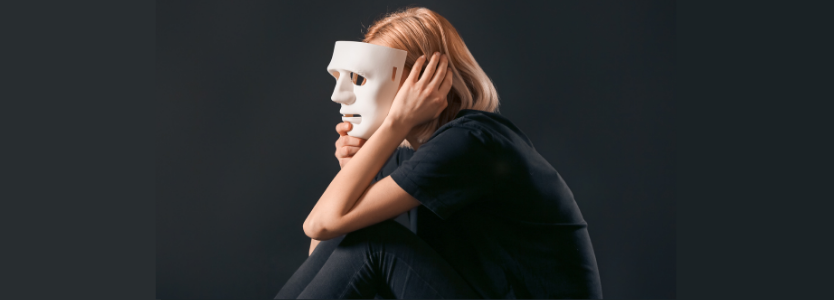
Dangers of Masking Like a Pro
by Sherri Lojzer November 30, 2021, 12:00 PM
When we mask effectively, we are simulating the actions and behaviours of others in an attempt to blend in and be accepted. This is a coping skill those with ADHD develop at an early stage in life.
As soon as they begin to recognize they are often receiving negative feedback for the things they do naturally, they begin to look for ways to avoid it. After all, anthropologically, we are wired to share our culture of beliefs and behaviours with those close to us so we can continue to be kept safe with the rest of the tribe. This programming has been necessary for humans for hundreds of thousands of years.
The challenge with becoming masters of masking is that it creates two issues.
- The idea is to blend in to feel safe and be safe but once that sense of safety and stability develops, the person masking is at risk of needing to be ever-vigilant they never let that mask slide
- And secondly, it perpetuates the imposter syndrome experience and brings it to new heights. This is because of this constant state of vigilance to avoid natural ADHD tendencies showing through.
Now in your business or at work your brain is not only engaged in trying to tackle the workload, planning, decision-making, and problem-solving but the other half of your energy and focus is on the need to keep up appearances - all driven by the heightened chemical reactions in your brain to fear of being found out which naturally drives down the capacity of several of your brain networks to do the workload, planning, decision-making, and problem-solving.
What's more, is that this same mastery at masking creates another, deeper problem: The more we seek to connect with others and feel we can be accepted, the less likely our colleagues, friends, and even romantic partners will be able to do that. The reason is that they are responding to the masked person who is likely imitating them rather than someone who is being themselves and giving the other person a chance to get to know us and understand who is under the mask.
Humans are naturally drawn to people who are like ourselves or what we want to be like so the person you are imitating while masking thinks you are similar to them.
Over time, as the mask begins to fall, they may feel betrayed or confused by the change in who you are and may suddenly pull away or even ghost. This happens often professionally and personally, so many people wonder why after a period of time, many of the relationships they build tend to go sideways. Taking a step back to identify if this is a source of that experience can help build awareness towards that pattern.
Tell us what your insights are on this topic
